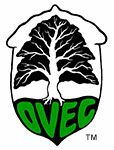- Like
- Digg
- Del
- Tumblr
- VKontakte
- Buffer
- Love This
- Odnoklassniki
- Meneame
- Blogger
- Amazon
- Yahoo Mail
- Gmail
- AOL
- Newsvine
- HackerNews
- Evernote
- MySpace
- Mail.ru
- Viadeo
- Line
- Comments
- Yummly
- SMS
- Viber
- Telegram
- Subscribe
- Skype
- Facebook Messenger
- Kakao
- LiveJournal
- Yammer
- Edgar
- Fintel
- Mix
- Instapaper
- Copy Link
For Immediate Release March 16, 2014
Contacts:
Bo Webb, acheact.org, 304-237-0065, webb.bo@gmail.com
Vernon Haltom, Coal River Mountain Watch, 304-952-4610, vernon@crmw.net
Maria Gunnoe, Ohio Valley Environmental Coalition, 304-245-8481, maria@ohvec.org
Cindy Rank, West Virginia Highlands Conservancy, 304-924-5802, clrank2@gmail.com
Bill Price, WV Chapter of the Sierra Club, 304-389-8822, Bill.Price@sierraclub.org
Allen Johnson, Christians for the Mountains, 304-799-4137, allen@christiansforthemountains.org
Citing health hazards, citizens gather to demand an end to mountaintop removal permits
CHARLESTON, W.Va.—Today approximately 200 West Virginians rallied for healthy communities at the West Virginia Dept. of Environmental Protection (WVDEP) headquarters in Charleston. The People’s Foot, a coalition of West Virginia groups and individuals, held the “No More Mountaintop Removal Permits Day” to demand that the WVDEP stop issuing new permits for this coal extraction method. Mountaintop removal causes clouds of fine blasting dust, known to promote lung cancer and other diseases, to drift through communities.
More than two dozen studies have found significantly higher rates of cancer, heart disease, birth defects, and other deadly illnesses in communities near coal mining, particularly mountaintop removal. In one of the latest, “Appalachian mountaintop mining particulate matter induces neoplastic transformation of human bronchial epithelial cells and promotes tumor formation,” scientists at the Mary Babb Randolph Cancer Center found a direct link. This joins the long list of studies providing plenty of evidence that issuing more permits further endangers our health.
OVEC organizer Maria Gunnoe of Bob White, W.Va. said, “Mountaintop removal is killing the people I love, and my government is allowing it. The WVDEP is permitting one disaster after another, and the people of West Virginia pay for these disasters. West Virginia cannot continue to prop up the coal industry by permitting cancer.”
“WVDEP Secretary Randy Huffman has finally conceded that these health studies need to be considered, but he says that his agency does not have the expertise to do so,” said Coal River Mountain Watch executive director Vernon Haltom. “If his agency does not understand the health impacts of the actions that they permit, then they have no business issuing more mountaintop removal permits. Randy Huffman has the authority, the mission, and the moral obligation to protect people’s health, so he should issue no more mountaintop removal permits until he understands the consequences.”
Dr. Michael Hendryx, one of the scientists involved in most of the studies, responded to Huffman’s comments: “I am pleased that the importance of the studies is finally being acknowledged by the DEP. But words alone are not enough. Real action is required to end the harm caused by mountaintop removal. Time will tell if the DEP is true to its word and cooperates with other agencies to consider the evidence and act to reduce harm.”
Ten-year-old Ukiah Cordell of Charleston said, “I used to love hiking up a mountain, letting the cool breeze blow away my negative thoughts. I still do. But now, it is not always so nice. Now, some breezes, instead of blowing my negative thoughts away, bring more, along with invisible dust, and a putrid smell… Without mountains, West Virginia is not West Virginia.”
Bo Webb, People’s Foot organizer and Appalachian Community Health Emergency (ACHE) campaign coordinator, said, “Randy Huffman could refuse to issue another mountaintop removal permit based on the health impacts, but he would lose his job. Our state government will make sure that the permits continue to flow. To protect our health, we need federal intervention in the form of the ACHE Act, HR 912.
After the rally, approximately 40 participants remained for a scheduled meeting with WVDEP officials. WVDEP, expecting to meet with only 10 citizens, said that the only room that they had available would hold 21 people. WVDEP also declined to meet with the citizens in the lobby where they were gathered. Rather than be separated with half the participants excluded, the citizens left as a group.”
“If we had been a coal industry group, they would have made room,” said Webb outside the WVDEP building. “There’s no reason that they couldn’t either find room or come out to the lobby to speak with us. They will continue to issue mountaintop removal permits until we the People make them stop.” Webb urged everyone to follow The People’s Foot and the participating groups.
Find information about the Appalachian Community Health Emergency (ACHE) Act here.
A list of health studies related to mountaintop removal is available here.
###








